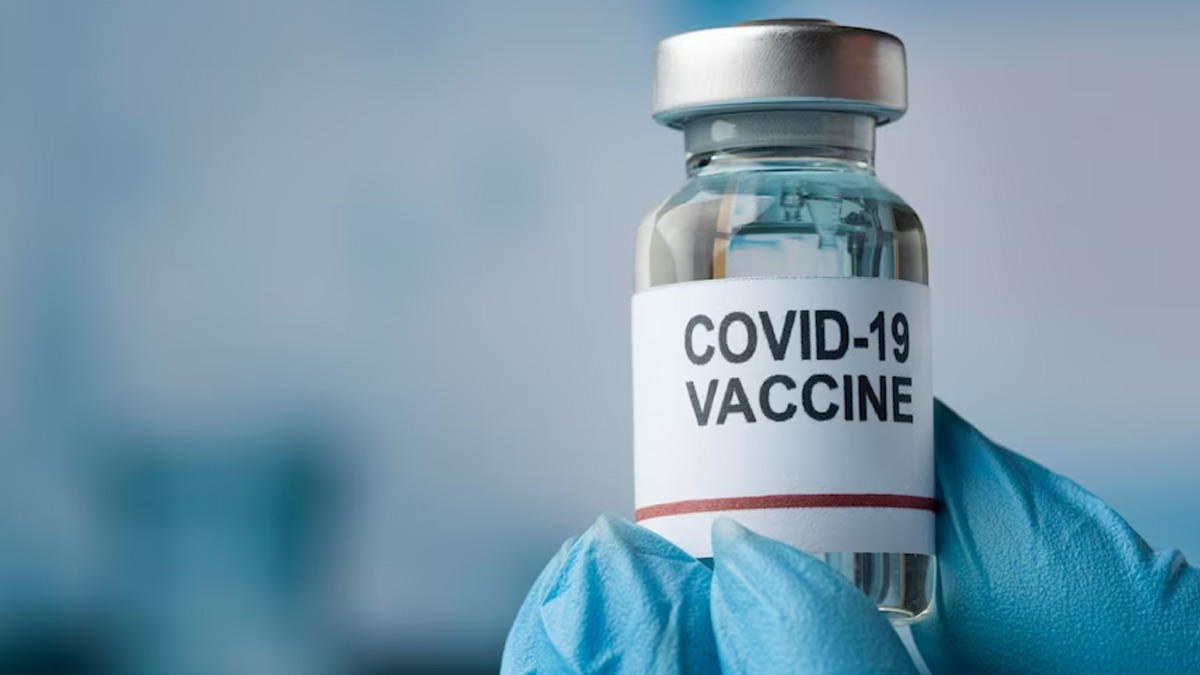COVID Vaccine Only 4% Effective Against Continuous Exposure to SARS-CoV-2: Study


Despite the emergence of highly virulent COVID strains every so often and the looming threat of Long COVID, the daily COVID tally of India sits comfortably low. The Union Ministry of Health and Family Welfare informed that India logged 23 new COVID-19 cases yesterday, bringing the number of active cases to 1,470. According to the health ministry’s website, India’s COVID case tally now stands at 4.49 crore (4,49,96,676) since the beginning of the pandemic in 2020, and the national recovery rate stands at 98.91%. Additionally, 220.67 crore doses of COVID-19 vaccine have been administered in the country so far, relayed the ministry.
Although these low levels of coronavirus cases and high coverage of COVID-19 vaccines might seem like a sign of relief, a recent study has brought some disturbing facts to light. Assessing inmates from a correctional facility in Connecticut, a study published in the journal ‘Nature Communications,’ presented how too much exposure to SARS-CoV-2 could reduce or trump the immunity that COVID-19 vaccination, prior infection, and herd immunity provided.
Findings of The Study

The purpose of the research was to understand whether the immunity gained after vaccinations and having already recovered from COVID-19 previously was effective against multiple encounters with high viral load. Tracking infections among 15,444 residents of Connecticut correctional facilities between June 2021 and May 2022 during the Delta and Omicron epidemic waves, the protection warranted after vaccination and through herd immunity was weaker in inmates sharing their cell block with an infected resident.
Also Read: COVID Vaccine Immunity Wanes After 6 Months In 30% Participants: Study
The study informed that during the Delta wave, vaccination was 68% effective against COVID-19 for residents who did not have a documented exposure to SARS-CoV-2, compared to only 26% efficacy in residents living with an infected cellmate. Furthermore, prior coronavirus infection was 79% effective in preventing infection in cases of no exposure to COVID-19 but was 41% effective when a resident was exposed to an infected person in their cell.
The researchers shared that herd immunity provided the highest level of protection, at 95 per cent and 71 per cent effectiveness, in residents without and with documented exposures respectively.

After establishing the efficacy of vaccines, prior infection, and herd immunity during the deadly Delta wave, the researchers explored their efficacy in preventing infection during the subsequent Omicron wave. The study found that vaccination was 43% effective at preventing coronavirus in residents without documented exposure but was just 4% in residents who shared a cell with an infected person. A previous infection was effective by 64% in inmates who had not been exposed to the new COVID variant, as opposed to 11% effectiveness when the inmate was sharing their cell with an infected patient.
Also Read: Pfizer’s COVID Vaccine Provides Partial Protection Against Omicron: Study
Although herd immunity afforded higher levels of protection during the Delta wave, it was only 20% effective in residents who were exposed to SARS-CoV-2 continuously in contrast to 76% effectiveness in residents without documented exposure.
Bottomline
This research marks the first time such debate has been incited around the ability of COVID-19 vaccines, herd immunity, and prior infection to prevent further COVID-19 infections. The findings suggest that in densely populated settings, COVID-appropriate measures such as wearing a mask, social distancing, and better ventilation, should be practised without fault to increase your protection against SARS-CoV-2. This study shows the potency of coronavirus and should be compelling enough evidence to convince each one of us that COVID is still very much a threat to public health.
